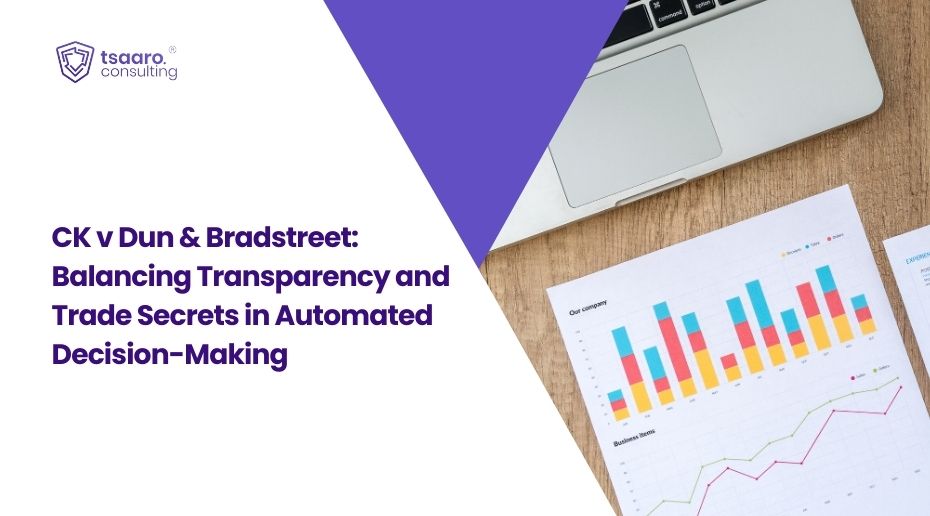In need to regulate social media and digital media platforms, the Ministry of Electronics and Information Technology (MeitY) issued new regulations under the Information Technology Act, 2000. The Information Technology (Guidelines for Intermediaries and Digital Media Ethics Code) Rules, 2021 guidelines serve two primary and significant goals:
- – to make social media platforms more liable in an attempt to prevent abuse and misuse.
- – to provide social media users with more authority by constructing a three-tiered grievance resolution process.
The amendment, which MeitY made available for public comment scrutiny on June 1st, was withdrawn as soon as it was released. It is heard the policy might be released once more.
Before learning about the newly drafted legislation, lets run through the historical background of the parent law.
HISTORICAL RUN.
A legal framework for digital media in India did not exist prior to the introduction of these guidelines. The Ministry of Information Broadcasting (MIB) had no control over content available online, and court rulings involving content available online were governed by the IT Act. OTT (Over The Top) players including any streaming services that deliver content over the internet, such as Hotstar and Netflix, have made several attempts to create an open regulatory framework for digital content.
The MIB asserted its lack of authorization over online regulation in 2005 and denied seeking any regulations or guidelines. An NGO filed a Public Interest Litigation in 2018 calling for distinct rules to control online content. The Delhi High Court dismissed the PIL and held that the MIB’s opinion that online platforms didn’t need any license to display content or a regulatory framework. Additionally, the Ministry of Electronics and Information Technology (“MeitY”) asserted that since it does not control the content of the internet some provisions of the IT Act would be relevant. The court had further stated that no regulatory authority would be accessible and that Sections 69, 66A, and 67B of the IT Act would apply. It was decided that the IT Act contained enough regulations to justify taking action concerning the online content.
Finally, The Supreme Court gave notice to the Centre in October 2020 via a PIL in which the demand for an independent regulatory framework for online content. OTT platforms, including Hotstar, Netflix, and Prime, adopted self-regulatory rules to direct content producers to meet consumer needs and interests.
Section 69A of the IT Act allows the Central Government to order restrictions on who can access what information online. A framework for exercising due diligence is established by the IT (Intermediary Guidelines) Rules, 2011, which intermediaries must abide by when hosting or publishing content on any of their computer resources. Over-the-top (OTT) platforms may also be subject to the rules.
In the post-COVID-19 era, switching from cable channels to OTT platforms for escapism became quite popular. As a result, there has been an increase in demand for a clear framework that would be used to control intermediaries and online content. The Information Technology (Guidelines for Intermediaries and Digital Media Ethics Code) Rules, 2021 are new regulations under the IT Act that the Ministry of Electronics and Information Technology announced after years of discussion. OTT platforms would be referred to as “publishers of online curated content” under the new laws. A Code of Ethics would be enforced and applied to OTT platforms, online news organisations, and digital media companies.
CHANGES THAT DRAFT OFFERS.
The following are the main adjustments that the draft amendments recommend:
- Obligations of intermediaries: According to the 2021 Rules, the intermediary must “publish” its rules and policies, privacy statement, and user agreement before allowing anyone to access or use its services. The types of content users can produce, upload or share are constrained by the Rules. Intermediaries must “inform” users of these limitations as per the Rules. The goal of the proposed changes is to broaden the responsibilities of intermediaries to include,“ensuring compliance” with the user agreement, privacy policy, and rules as well as”causing users to not” produce, upload, or share illegal content.
- The proposed changes also require that intermediaries take all necessary steps to ensure that all users can access their services with a reasonable expectation of due diligence, privacy, and transparency. In addition, intermediaries need to respect each user’s constitutional rights. The Ministry noted that this change was required because numerous intermediaries had violated citizens’ constitutional rights.
- Mechanism for rebutting grievance officer rulings: Under the 2021 Rules, intermediaries must name a grievance officer to handle complaints about rule violations. The Ministry noted that there had been instances in which these officers have failed to fairly or satisfactorily address complaints. A person who feels wronged by the grievance officer’s decision must go to court to seek justice.
- Accelerated termination of prohibited content: Under the 2021 Rules, intermediaries must acknowledge complaints about rules violations within 24 hours and resolve them within 15 days. The proposed changes require those complaints about removing prohibited content to be resolved within 72 hours. According to the Ministry, a stricter deadline will aid in the prompt removal of prohibited content, given the potential for content to go viral online.
CONCLUSION.
Traditional media content, such as print, television, film, and radio, is governed by specific laws and licence agreements (in the case of TV and radio). These laws ensure that readily available public content reflects community standards. Based on content’s age suitability and potential legality, they also try to limit access to some of it. There are few due to financial costs and specific licence requirements for some operations. The internet has developed into a more widely used platform for distributing news and entertainment content in recent years.
The Intermediary Guidelines are essentially an effort to develop a three-tiered grievance redressal process and a soft-touch, self-regulatory architecture for digital media platforms operating in India. The new laws are intended to establish a self-regulatory framework for internet intermediaries, social media platforms, streaming services, and digital media companies.
The Intermediary Guidelines, are being contested as an attempt to restrict freedom of speech and expression and are expected to be a challenging task for social media and digital media platforms. A delicate balance would be needed to address the difficulties of defending and defending the rights of victims of social media abuse vs individual freedom of expression.











This article is fantastic! The insights provided are very valuable. For those interested in exploring more, check out this link: LEARN MORE. Looking forward to the discussion!
Главные новости мира https://ua-vestnik.com и страны: политика, экономика, спорт, культура, технологии. Оперативная информация, аналитика и эксклюзивные материалы для тех, кто следит за событиями в реальном времени.
Простые и изысканные рецепты https://vagon-restoran.kiev.ua для повседневной и праздничной кухни. Советы, техники и вдохновение для создания вкусных блюд дома.
Советы по стилю https://pic.lg.ua красоте, отношениям и здоровью. Модные тренды, лайфхаки и идеи для женщин, которые хотят быть яркими, уверенными и успешными.
Советы для родителей https://stepandstep.com.ua воспитание, здоровье, развитие и досуг детей. Полезные статьи, лайфхаки и идеи для гармоничных отношений в семье и счастливого детства.
Женский портал о моде https://womanonline.kyiv.ua красоте, здоровье и жизни. Лёгкие советы, вдохновляющие тренды и полезные лайфхаки для гармонии и уверенности.
промокод продамус на 5000 промокод продамус на 5000 .
is it illegal to buy prescription drugs online: canadian drugs gate – ed drugs list
продамус промокод скидка на подключение продамус промокод скидка на подключение .
amoxicillin 200 mg tablet https://amoxilcompharm.com/# amoxicillin order online
Priligy tablets: priligy maxpharm – buy dapoxetine online
amoxil pharmacy: Amoxicillin for sale – how much is amoxicillin
Харьков Днепр маршрутки
amoxicillin over counter https://prednisoneraypharm.com/# prednisone generic brand name
clomid cheap: cheap clomid – how to get clomid
can you buy amoxicillin over the counter in canada https://priligymaxpharm.com/# buy priligy
amoxicillin 500mg for sale uk: buying amoxicillin online – amoxicillin 500mg tablets price in india
cheap priligy: cheap priligy – cheap priligy
prednisone buy canada: prednisoneraypharm – can i buy prednisone over the counter in usa
mexican drugstore online https://mexicanpharmgate.com/ mexican online pharmacies prescription drugs
buy Clopidogrel over the counter: PlavixClo Best Price – generic plavix
medication from mexico pharmacy https://mexicanpharmgate.com/ mexico drug stores pharmacies
stromectol 6 mg tablet: cheapest Ivermectin – ivermectin
minocycline 100mg without a doctor: cheapest Ivermectin – stromectol tab price
plavix best price: PlavixClo – cheap plavix antiplatelet drug
antiplatelet drug: Clopidogrel 75 MG price – antiplatelet drug
https://cytpremium.com/# buy cytotec pills online cheap
stromectol price usa: IverFast – ivermectin 12
пин ап казино: pinup – пин ап казино онлайн
https://vavada-kazi.ru/# vavada-kazi.ru
пинап казино: pinup – пин ап казино
вавада: вавада – вавада онлайн казино
pinup-kazi.ru: пинап казино – pinup-kazi.ru
пин ап казино онлайн пинап казино пин ап кз
вавада онлайн казино: вавада – казино вавада
pinup-kazi.kz: пинап казино – pinup-kazi.kz
вавада: vavada kazi – vavada
https://vavada-kazi.ru/# вавада казино онлайн
пин ап кз: pin up казино – пинап казино
pinup: пин ап казино – пинап казино
pinup kazi pinup kazi пин ап казино онлайн
пин ап зеркало: пин ап казино – pinup-kazi.ru
pinup kazi: пин ап зеркало – pinup kazi
pinup: пин ап зеркало – пин ап казино
pinup-kazi.ru: пин ап казино – pinup kazi
пинап казино пинап казино pinup kazi
пинап казино: pinup-kazi.ru – пинап казино
пин ап зеркало: пин ап зеркало – пин ап вход
vavada kazi: vavada-kazi.ru – вавада казино зеркало
пин ап казино: pinup-kazi.ru – пинап казино
пин ап кз: пин ап казино – pinup
ed medications online https://canadianpharm1st.com/# male erectile dysfunction
cheap erectile dysfunction pills online canadian pharmacy ed meds online without doctor prescription
best ed treatment: canadianpharm1st – ed cures
indianpharmacy com: indian pharmacy – top 10 pharmacies in india
best ed pills: canadian pharm 1st – natural ed medications
reputable mexican pharmacies online mexican pharm easy mexico drug stores pharmacies
mexican mail order pharmacies: mexicanpharmeasy.com – mexico drug stores pharmacies
ed aids: canadian pharm 1st – viagra without a doctor prescription
treating ed: canadianpharm1st.com – ed medication
indian pharmacy paypal indian pharm indian pharmacy
pharmacy website india: indian pharm – top online pharmacy india
online prescription for ed meds https://mexicanpharmeasy.com/# reputable mexican pharmacies online
Online medicine order: indian pharm – indian pharmacies safe
pet meds without vet prescription canada https://indianpharmstar.com/# online pharmacy india
mexico drug stores pharmacies: Pharm Easy – buying prescription drugs in mexico
india online pharmacy: IndianPharmStar – buy prescription drugs from india
mexico pharmacies prescription drugs mexican pharmacy purple pharmacy mexico price list
mexico drug stores pharmacies: MexicanPharmEasy – п»їbest mexican online pharmacies
generic ed drugs https://indianpharmstar.com/# world pharmacy india
pharmacies in mexico that ship to usa: mexican pharmacy – п»їbest mexican online pharmacies
best online pharmacies in mexico: MexicanPharmEasy – medication from mexico pharmacy
reputable mexican pharmacies online: Pharm Easy – п»їbest mexican online pharmacies
foods for ed canadianpharm1st canadian online pharmacy
viagra without a doctor prescription https://mexicanpharmeasy.com/# purple pharmacy mexico price list
world pharmacy india: IndianPharmStar – mail order pharmacy india
Конструкторы оружия России https://guns.org.ru история создания легендарного оружия, биографии инженеров, технические характеристики разработок.
pharmacies in mexico that ship to usa: mexican pharm easy – medication from mexico pharmacy
supplements for ed https://indianpharmstar.com/# п»їlegitimate online pharmacies india
erectile dysfunction cure canadianpharm1st buy prescription drugs online
ed treatment review: canadian pharmacy – pain meds online without doctor prescription
cheap pills online: canadianpharm1st.com – erectile dysfunction medications
indian pharmacies safe: indian pharmacy – top 10 pharmacies in india
buy medications online: canadianpharm1st – ed vacuum pumps
erectile dysfunction treatment https://canadianpharm1st.com/# ed supplements
erectile dysfunction drugs canadian pharm 1st ed drug comparison
mexico drug stores pharmacies: MexicanPharmEasy – mexican rx online
Amoxil Pharm Store AmoxilPharm Amoxil Pharm Store
https://ivermectinpharm.store/# ivermectin lice oral
Gabapentin Pharm: neurontin 800 mg pill – neurontin 300mg caps
Ivermectin Pharm: Ivermectin Pharm – Ivermectin Pharm
Semaglutide pharmacy price: cheap Rybelsus 14 mg – Buy compounded semaglutide online
https://amoxilpharm.store/# amoxicillin 500 mg without prescription
paxlovid generic: paxlovid for sale – Paxlovid over the counter
how much is neurontin: drug neurontin 200 mg – Gabapentin Pharm
https://semaglutidepharm.com/# semaglutide
Ivermectin Pharm Store: Ivermectin Pharm – Ivermectin Pharm Store
semaglutide: cheap Rybelsus 14 mg – rybelsus generic
https://gabapentinpharm.com/# neurontin 204
Gabapentin Pharm: Gabapentin Pharm – Gabapentin Pharm
Ivermectin Pharm: Ivermectin Pharm – is minocycline an antibiotic
https://paxlovid.ink/# paxlovid price
where to buy amoxicillin 500mg without prescription: Amoxil Pharm Store – AmoxilPharm
Its like you read my mind! You appear to know a lot about this
https://paxlovid.ink/# Paxlovid.ink
AmoxilPharm: AmoxilPharm – Amoxil Pharm Store
https://gabapentinpharm.com/# Gabapentin Pharm
semaglutide: buy semaglutide online – rybelsus
https://paxlovid.ink/# Paxlovid.ink
Покупка диплома о среднем полном образовании: как избежать мошенничества?
https://clomid.store/# where can i buy clomid without rx
Comments are closed.